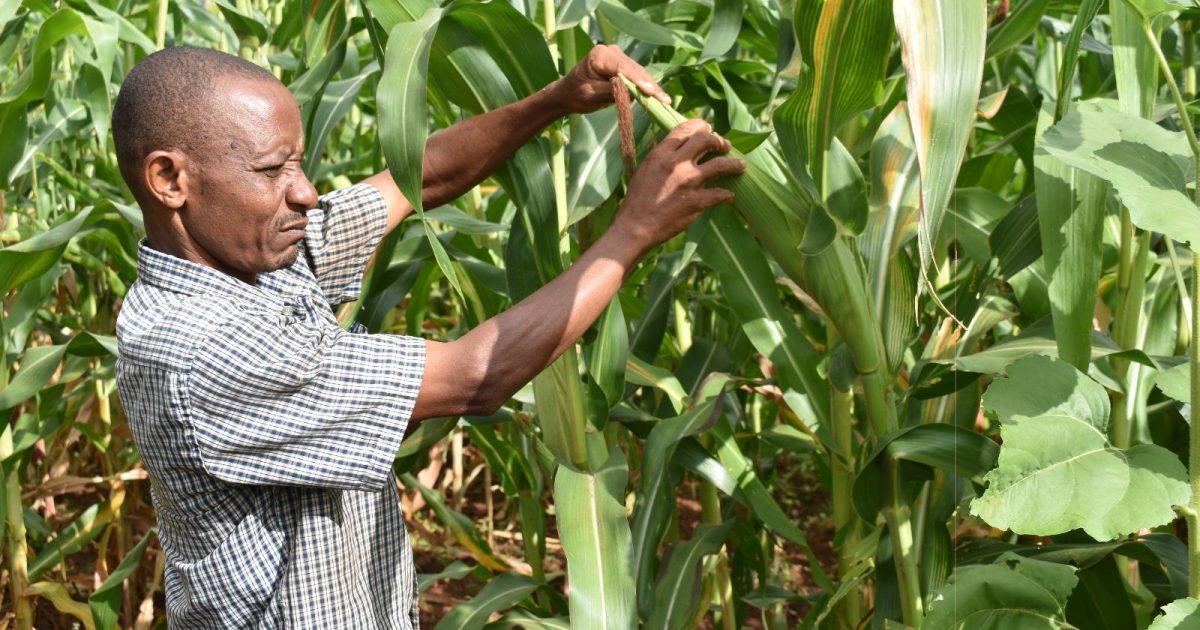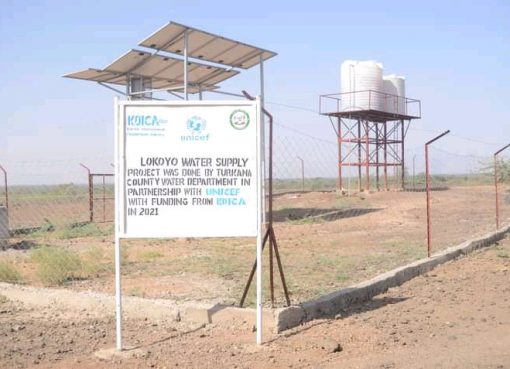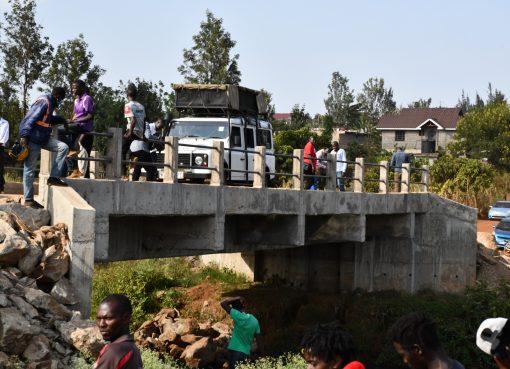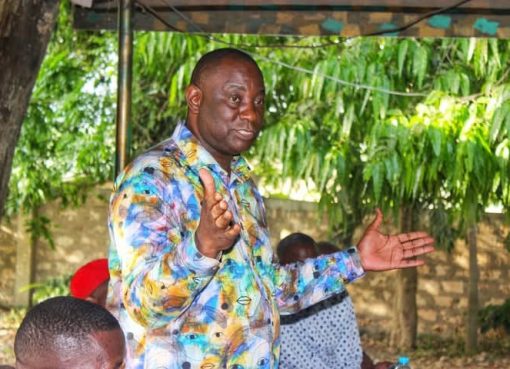The Coast Development Authority (CDA) is repositioning its socio-economic activities as it seeks to achieve the Bottom-up Economic Transformation Agenda (BETA) plan championed by the national government.
The regional authority is investing in local grassroots economic developments as well as boosting transformational agricultural activities in the coastal counties of Kwale, Kilifi, Lamu, Taita Taveta, and Tana River.
CDA Managing Director (MD) Dr. Mohamed Keinan says development projects in the coastal counties are being aligned with the government’s five-point BETA plan which is President William Ruto’s focal point in ensuring his administration delivers to Kenyans.
The BETA Plan focuses on Agricultural Transformation and Inclusive Growth; Micro, Small, and Medium Enterprises (MSMEs); Housing and Settlement; Healthcare; and Digital Superhighway and the Creative Industry.
Dr. Keinan says CDA is escalating its efforts to boost irrigation agriculture as a way of ensuring year-round uninterrupted farming.
He says the authority is undertaking several irrigation projects designed as a ‘ladder out of poverty’ for the smallholder farmers in areas endowed with sufficient water resources for irrigation-based agricultural intensification.
The CDA MD says the authority has embraced a holistic approach to boost food production in the region, by training and sensitizing farmers on good agricultural practices which will enable the region to be food-sufficient.
He says CDA seeks to spur socio-economic development, promotion of value addition, and environmental sustainability.
“We seek an agricultural revolution that will strengthen food security, improve skills of local farmers, and increase mechanized agriculture,” he said, adding that CDA will continue to invest in agricultural development to find lasting solutions to the problem of food insecurity.

Dr. Keinan was speaking during an interview while reviewing his accomplishments in the last seven years at the helm of the regional authority.
He says CDA is also rehabilitating areas surrounding the Sh 20 billion Mwache Multipurpose Dam project which seeks to help tackle persistent water shortages in the coastal region.
Dr. Keinan says CDA is currently involved in projects such as the Lake Challa Smallholder Irrigation Scheme in Taita Taveta County, the Chakama Smallholder Irrigation Project in Kilifi County, and several Drought Mitigation Projects.
The Sh 3.3 billion Lake Challa project seeks to increase food security through the supply of water for irrigation farming; livestock production and domestic use thereby building the community’s resilience to climate change and improving their living standards.
Dr. Keinan says the Lake Challa project is aimed at utilizing the Lake Challa water resource to supply water for domestic and irrigation use for the benefit of the residents and supply water to support livestock, fisheries, and forestry including wildlife.
He noted the Lake Challa irrigation scheme will ensure the prosperity of the people of Taita Taveta and fulfill the government’s vision regarding the BETA development agenda.
Dr. Keinan says besides supplying water to the local people, the project is also supplying water to the 190-acre Kasokoni Irrigation Scheme which has up-scaled horticultural farming in the area.
Dr. Keinan said that courtesy of the project, thousands of tonnes of bananas, onions, chilies, tomatoes, cassava, maize, beans, pawpaws, mangoes, cabbages, lemons, and oranges are being produced by farmers doing irrigation at the Kasokoni irrigation scheme.
The MD further said that CDA spent Sh 45 million on the first phase of the Lake Challa irrigation project which was secured from the National Treasury.
The CDA top official says the solar-powered Sh 22 million Chakama scheme was initiated to assist in boosting food production and upgrading the living standards of the residents in the arid location.
The 220-acre Chakama Irrigation scheme was designed as a ‘ladder out of poverty’ for rural communities and smallholder farmers.
He says CDA has spent Sh. 33 million to establish solar irrigation systems in Gava, Kibora, and Kanduru all in Kilifi County due to increased demand for irrigated agriculture in the region.
“Irrigation farming has the potential to transform the coastal counties economic fortunes and as CDA we have lined up several irrigation development projects,” he said.
He urged local farmers to take advantage of the small-scale irrigation schemes and other poverty alleviation strategies to maximize agricultural productivity.
Among the Sh.142 million CDA projects that fall under the drought mitigation projects are the Abaq Qiiq (Tula) Earth Fill Pan Project, Galmagalla Earth Fill Pan Project, Yaqhrith Earth Fill Pan Project, and Mlilo Water Project.
Dr. Keinan noted that providing food and nutrition security to residents of the coastal region remains one of CDA’s top priorities.
The CDA MD said similar small-holder irrigation projects are being implemented in Kwale, Taita Taveta, and Tana River counties to increase production as well as food and nutritional security.
He says the lack of irrigated agriculture puts at risk the livelihoods of hundreds of smallholder farmers who remain hostage to climate variability.
Dr. Keinan said with the growing threat of climate change rural irrigation is coming in handy to boost agricultural production and enhance food security.

“The irrigation schemes will help us scale up climate smart agriculture as well as allow smallholder farmers to grow crops before and after the rainy seasons and enhance national food security,” he said.
He said irrigation is increasingly seen as a necessary means to build resilience in smallholder farming and to increase productivity around the year to meet increasing food demands.
Dr. Keinan says local farmers receive intense training on better and modern farming methods and production techniques in a bid to scale up food production and environmental conservation.
On the issue of reducing postharvest losses for fruit farmers in Tana River county, CDA has opened a Sh. 100 million integrated food processing factory in Hola town to add value to fruits produced in the region which were mostly going to waste due to lack of ready market.
He says the factory is helping local farmers to process their fruits, create employment opportunities and increase their income status.
A local farmer’s representative in Taita Taveta Peter Maga says small-holder farmers in the region are pegging their hopes on the CDA irrigation schemes.
He says the irrigation schemes have increased yields and significantly improved the lives of farmers, their families and residents.
Maga says farmers were initially captive to the erratic rainfall but the irrigation schemes have freed them to engage in farming activities full-time saying irrigation development is indeed most opportune.
The veteran farmer contends that CDA by implementing effective irrigation schemes local farmers can be assured of consistent water supply for their crops leading to increased agricultural productivity.
Johana Mearon, a farmer at Kosokoni irrigation scheme, says the irrigation project has helped local farmers continue with their farming activities all year round.
He says smallholder farmers have been facing a problem of food insecurity because of climate-induced droughts and lack of effective irrigation schemes.
Mearon says in the past the unpredictability of the weather patterns was taking a toll on planting and harvesting seasons and ultimately affecting crop yields.
By Hussein Abdullahi





